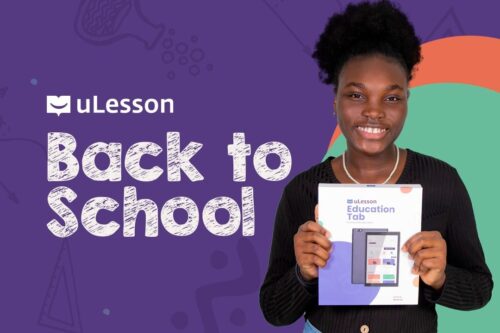
In 2022, African educational technology startups faced a sharp decline in funding, raising only $24.6 million—just 0.7% of the continent’s total funding, as per Disrupt Africa. This marked a 69.6% drop compared to 2021. Despite this downturn, these startups are persisting, expanding their services, and reshaping the sector to include more than just mobile learning tools.Hope for the sector was bolstered in February with the announcement of a $15 million accelerator program by Africa’s largest innovation hub network. This initiative aims to support up to 72 startups in Nigeria and Kenya over the next three years, reflecting a growing recognition of edtech’s potential in addressing Africa’s education challenges.
Here’s a closer look at some of the key players in the space and their progress:
uLesson: From Early Education to Tertiary Learning
Founded in 2019 by entrepreneur Sim Shagaya, uLesson quickly gained traction due to its engaging content and early funding, including a $3.1 million seed round and subsequent $22.5 million raised across Series A and B. The COVID-19 pandemic further boosted the platform’s adoption, allowing it to attract users from Ghana, South Africa, and even Uganda, where it hadn’t officially launched.The company’s vision extends beyond primary education. Recently, it announced Miva University, a new tertiary education initiative aimed at creating high-quality digital learning experiences for higher education students. Recruitment is already underway for academic staff and administrators to support this expansion.
Edukoya: Blending Education with Financial Literacy
Edukoya entered the scene in 2021 with a $3.5 million pre-seed round. Founded by Honey Ogundeyi, the platform focuses on providing accessible online education for Nigerian secondary school students, including live homework support and performance tracking.While Edukoya faced rumors of staff layoffs and a pivot to fintech, the company maintains its commitment to its core mission. It continues to refine its offerings and is actively hiring for new roles, aiming to expand its impact on education in Nigeria.
AltSchool Africa: Preparing Tech Talent for the Future
Launched in 2021 as part of the TalentQL ecosystem, AltSchool Africa focuses on equipping individuals with in-demand tech skills. The platform offers courses in software engineering, product development, and data analytics through a 12-month cohort-based model.Initially operating on an income-sharing agreement model, AltSchool has since transitioned to a subscription-based payment system. This shift allows students to pay for their education in affordable installments, enabling broader access to its programs.
Orcas: A Customized Learning Experience
Cairo-based Orcas started as a marketplace for tutors and babysitters in 2014. Over the years, it evolved into a comprehensive learning platform offering personalized, teacher-led, and self-paced courses.The platform allows learners to trial tutors before committing, and its flexible subscription options cater to various academic needs and budgets. Orcas has expanded its operations beyond Egypt to include Saudi Arabia and Pakistan, supported by $3.8 million in funding.
Foondamate: Bridging the Gap with Chat-Based Learning
South African startup Foondamate is democratizing access to educational resources through platforms like WhatsApp and Facebook. Its chatbot delivers textbooks, exam prep materials, and even past exam papers, offering an accessible alternative for students in low-resource environments.Launched in 2020, Foondamate has already secured $2 million in seed funding. Operating in South Africa and Nigeria, it’s making quality learning tools available to a wider audience, all while using minimal data.
The Future of EdTech in Africa
While funding has slowed, innovation in Africa’s edtech sector shows no signs of waning. Startups are pivoting, refining their models, and exploring new territories to ensure sustainable growth. As digital learning continues to mature, these companies are set to play a vital role in reshaping education on the continent, proving that challenges can be a springboard for opportunity.




